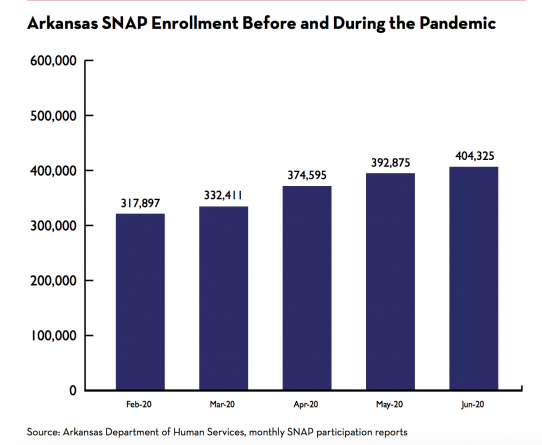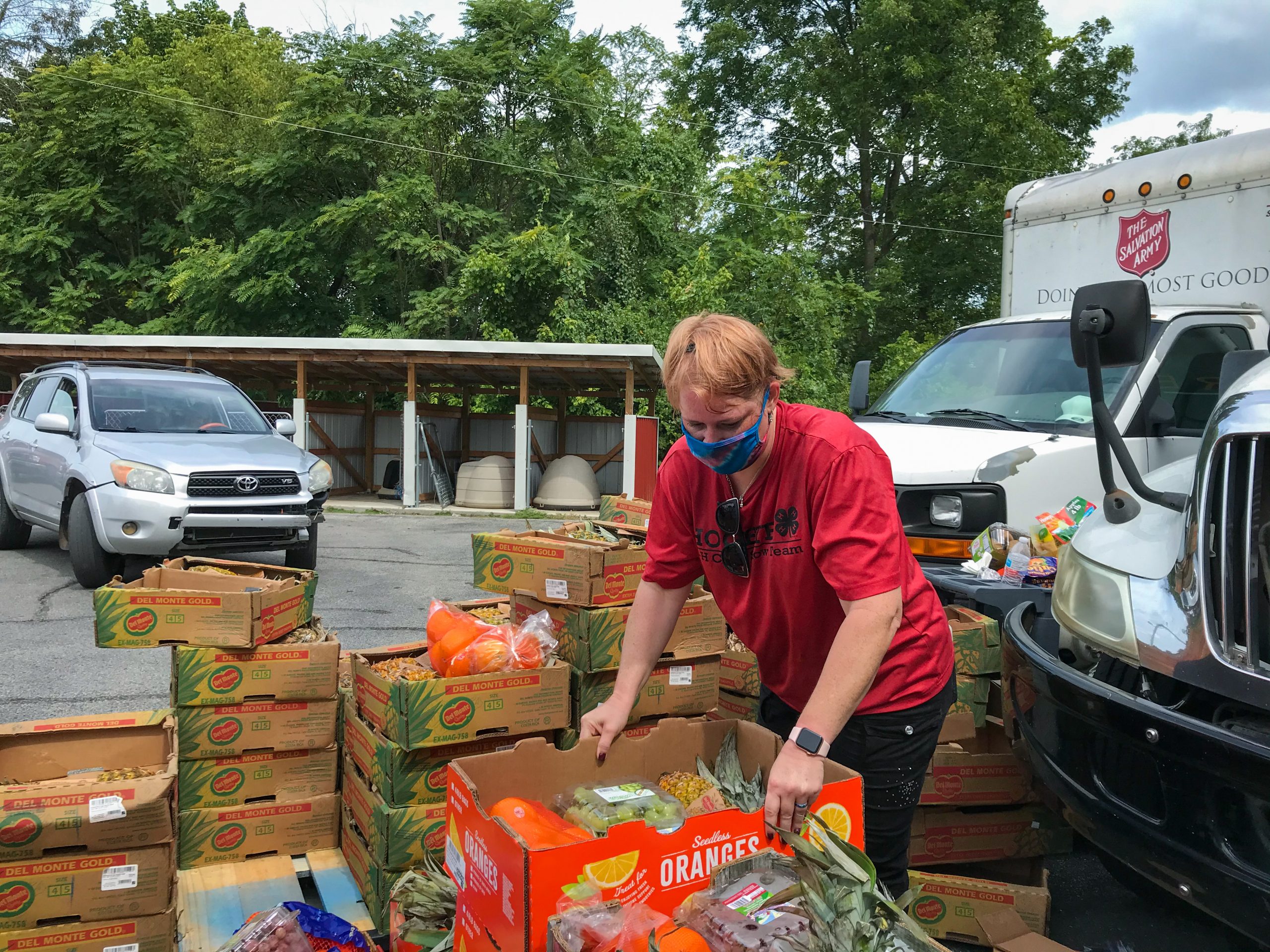By: Esther Gowin
FAYETTEVILLE, Ark. — The Salvation Army is helping to keep food on people’s tables during the pandemic by hosting free drive through food distributions.
When COVID-19 hit Arkansas earlier this year, the Salvation Army of NWA set up a way to distribute food that followed the CDC’s social distancing guidelines. The food is donated from local stores and each box contains items such as fresh fruits, vegetables, meat and bread.
Roland Jabon, a volunteer at one of the food distributions, said he personally knows people who have lost their jobs due to COVID-19.
“During this pandemic period, a lot of people are in a financial hardship,” Jabon said. “The way we can help them is to provide food for them.”
According to the U.S. Bureau of Labor Statistics, the unemployment rate in Northwest Arkansas was at 6.3 percent in June 2020. This number has increased by 4 percent since January 2020 where the unemployment rate of Northwest Arkansas typically averages around 3 percent.
The Area Commander for the Salvation Army of NWA, Josh Robinett, said that because the rate of unemployment in Northwest Arkansas has been increasing, the need for food is also increasing.
“In the last three months we have done about 12,000 food boxes,” said Robinett. “It’s very important that we get them out as quickly as possible, reduce any food waste that we can and make sure that people get food.”
Enrollment in the Supplemental Nutrition Assistance Program (SNAP), also known as food stamps, has been on a downward trend since 2013. However, a report released in July by the Arkansas Advocates for Children and Families (AACF) showed that about 13 percent of Arkansas’ population is now on food stamps.

Compared to last year, 3 percent more Arkansans are now on food stamps, according to the report by AACF.
The Salvation Army of NWA hopes to provide some relief by hosting distributions six times a week in Springdale, Rogers and Fayetteville locations.
“The last thing we want is someone who has lost a job, who might have some savings, are needing to pay their rent and feed their families,” said Robinett. “They are having to choose between rent and food or food and utilities and so the impact of these food distributions is much larger than just putting food in someone’s belly.”
Click here to view an interactive map of some locations of food pantries and distribution centers around Fayetteville.


